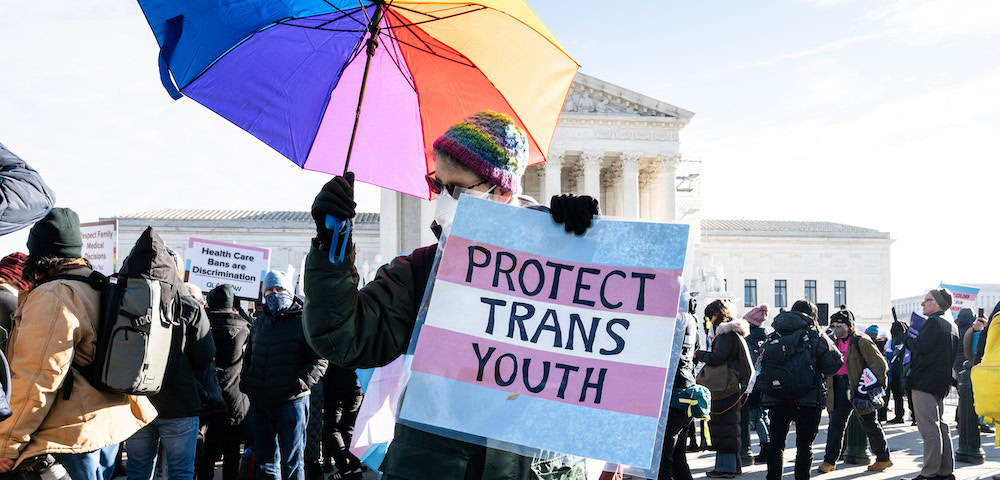
Human Rights Groups Oppose New NSW Hate Speech Laws

New hate speech laws proposed by the New South Wales government are facing criticism from human and civil rights groups, who cite concerns around the lack of protection for LGBTQIA+ groups, and expanded restrictions on protest.
Premier Chris Minns announced the new reforms on Thursday, making it a jailable offence to graffiti a Nazi symbol on or near a synagogue, and criminalising protest outside of places of worship.
However, the laws fail to protect faith groups and the LGBTQIA+ community, with Minns admitting that he didn’t have time to make extensive changes to anti-vilification legislation. The government moved, instead, to only outlaw intentionally incited rase-base hate in order to quickly address rising levels of antisemitism in Sydney.
“We were faced with a situation where we’re looking at naked racism on our streets today,” he said.
“I made a decision that I wanted to progress the hate speech laws as it applies to race immediately.”
Independent MP Alex Greenwich deemed the hurried reforms “cruel”, referencing the violent homophobic threats he received last year.
A 44-year-old man has been charged in relation to these alleged threats, as well as alleged threats made to members of a Jewish organisation.
“I know from personal experience that neo-nazis and other hate groups are targeting LGBTQ people as well as people who are Jewish,” he said.
“Protecting one group but not another would be nonsensical, cruel and inappropriate … it sets a dangerous precedent to provide, for the first time, protections for one attribute but not others and it risks sending the message that the government does not treat the incitement of hate hatred against those other groups as seriously.”
Equality Australia held similar concerns, calling the newly passed Bill “disappointing and divisive”.
“While we now have the first-ever federal protections for LGBTIQ+ people and our families against threats of violence, the new laws won’t protect us from those who target us by promoting hate, serious contempt or severe ridicule,” the organisation said.
“This is a missed opportunity to truly stamp out hate speech. Instead, it’s a band-aid on a much bigger wound.
Rodney Croome, a spokesperson for Just.Equal Australia demanded that the proposed measures be extended to LGBTQIA+ people immediately.
“If NSW LGBTIQA+ people do not have the same protections as other groups vulnerable to hatred, the message being sent is that hatred against us is less serious,” he said.
“It’s essential the NSW Government’s initiative be extended to protect LGBTIQA+ people from hate.”
Reforms not backed by experts
Queer and human rights groups say the laws risk the over-criminalisation of vulnerable minorities, including Aboriginal and Torres Strait Islander peoples, people with disability and young people.
The findings from a review into section 93Z of the Crimes Act handed to the government last year ruled against the laws, and warned that provisions like those suggested by the Minns Government are imprecise and subjective.
The review also emphasised that the reforms go against the advice of the UN Committee on the Elimination of Racial Discrimination which stipulates that restrictions on freedom of speech should not be ‘broad or vague’.”
NSW Council for Civil Liberties President, Timothy Roberts, said the proposed laws were “another knee jerk reaction from the Premier to a complex and sensitive area of law that does not survive a moment’s scrutiny.”
“This proposal reflects the Minn’s Government’s disdain for the right to protest. These laws have the effect of suppressing public assembly and protest as they will empower police to arrest and move people along with vague and subjective assessments of intimidation and harassment.
“The new laws will not assist in bringing about social cohesion. They will have a chilling effect on protest and speech, pushing dissenting voices from all corners of the political spectrum into the margins at a time when we should be having these important conversations, including challenging racial vilification, in public.”
Equality Australia also cited concerns about the targeting of vulnerable groups, and the lack of expert consultation made by the government prior to introducing these reforms.










Leave a Reply